In a moment that seemed mundane, my brain woke up to more than I may have been ready to take in. I opened the truck door and stepped outside in the Florida heat. My eye instantly caught something yellow and red in the grass, so I stopped short. The Eastern Lubber is now on my radar and feeding my curiosity.
Welcome To Florida
We left Atlanta as the sun was rising and found ourselves in temperatures above 100 just in time for a late lunch. After 7 hours, it takes something startling to distract me from heading straight to the restroom. The bright yellow and red insects at my feet were enough to sidetrack me. I soon learned that three eastern lubbers had greeted me at the doorstep of our cottage. Welcome to Florida in July.
Not As I Remember
Many who read this will find it old news, but not me. I did not grow up in Florida. My summer escapes brought me to sandy white beaches and comfortable condominiums… isn’t this how all of Florida looks? As life rolls along, we escape our childhood imaginings. Florida is a new place of discovery for me. Guess what, Florida is not just a beach destination. Nature abounds…freely! Every time I return I see or learn something fascinating outside. These 2–4-inch Florida (Eastern) lubbers may be some of the coolest creatures I’ve nearly stepped on.
Still A Grasshopper
Don’t be alarmed, they are colorful and large, but they are still just grasshoppers. While they can be found in large groups, especially when they are young, they are not locusts or cicadas. This is not a plague, and they are not here for long periods each year. I am sure Floridians are most likely not as fascinated by these insects as I am. They can devastate plants and citrus crops and for that, I understand the aversion. As for me, right here, right now, I am captivated and keep catching myself studying the grass as it moves under my feet.
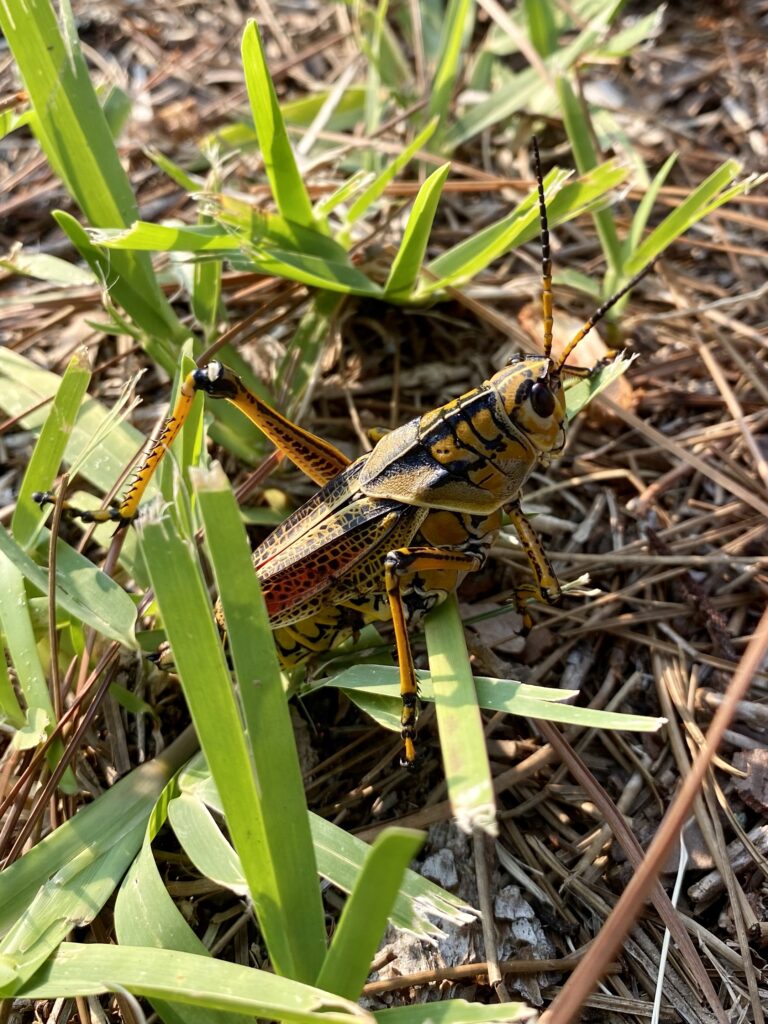
Don’t Spray
The best we can do is embrace these beautiful grasshoppers. They are resistant to most pesticides so just don’t spray. I will do my best not to preach here, but I believe spraying often does more harm than good in most scenarios. Maybe we are alarmed by the so-called pest and forget that the sprays often kill the good with the bad. That certainly is the case with the eastern lubbers. When we spray, we kill bees, their parasitic fly predators, and other necessary insects.
A Wonder Of Nature
I admit, they can be destructive, but I now know they cannot bite, sting, or fly. They are toxic so you won’t have to worry about eating one. They are native to Florida and did not come from some faraway land. The eastern lubber is part of the wonder of nature. The best we can do is to care for their predators and nurture habitats for birds and insects that know how to handle their toxicity. Yes, I was shocked and a bit startled by them, but filling my head with truths helped me go to the grass again and start searching for more lubbers.
Eastern Lubber
A few facts to help you embrace this marvel of nature…
- One of the lubbers’ natural predators is a small bird called a shrike. This bird can impale the grasshopper on thorns or wire, wait for its toxins to wane, and begin eating the lubber.
- The eastern lubber appears in the spring, molts five to six times, and resides through the summer months. This gives the native plants time to recover and prepare for next year.
- The name lubber comes from the old English word lobre. It means clumsy or lazy. Taking this a little further… I realized the term is landlubber (not land-lover). Again, those childhood “things”.
- The eastern lubber has two sets of wings but does not fly.
- They begin as small black groups of grasshoppers before becoming so big and colorful.
- The lubber can hiss and even spew a toxic puke.
- They are toxic, do not try to eat one!
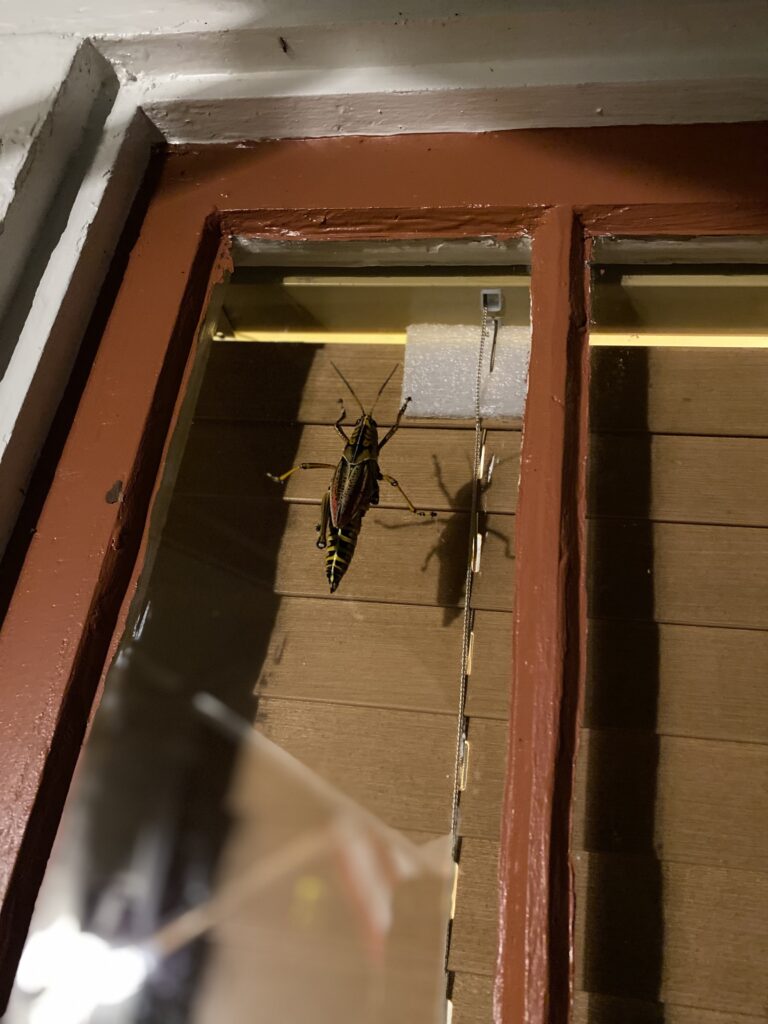
Rest Easy
That very night, I tried to read but was distracted by the showy sounds of nature outside. My book was set aside, and I ventured out the front door. I love the symphonic hums at night especially when they are as loud as they were tonight. The eastern lubber made himself comfortable on the window and we decided it was time to rest easy while nature sings us to sleep.
Stay Curious,

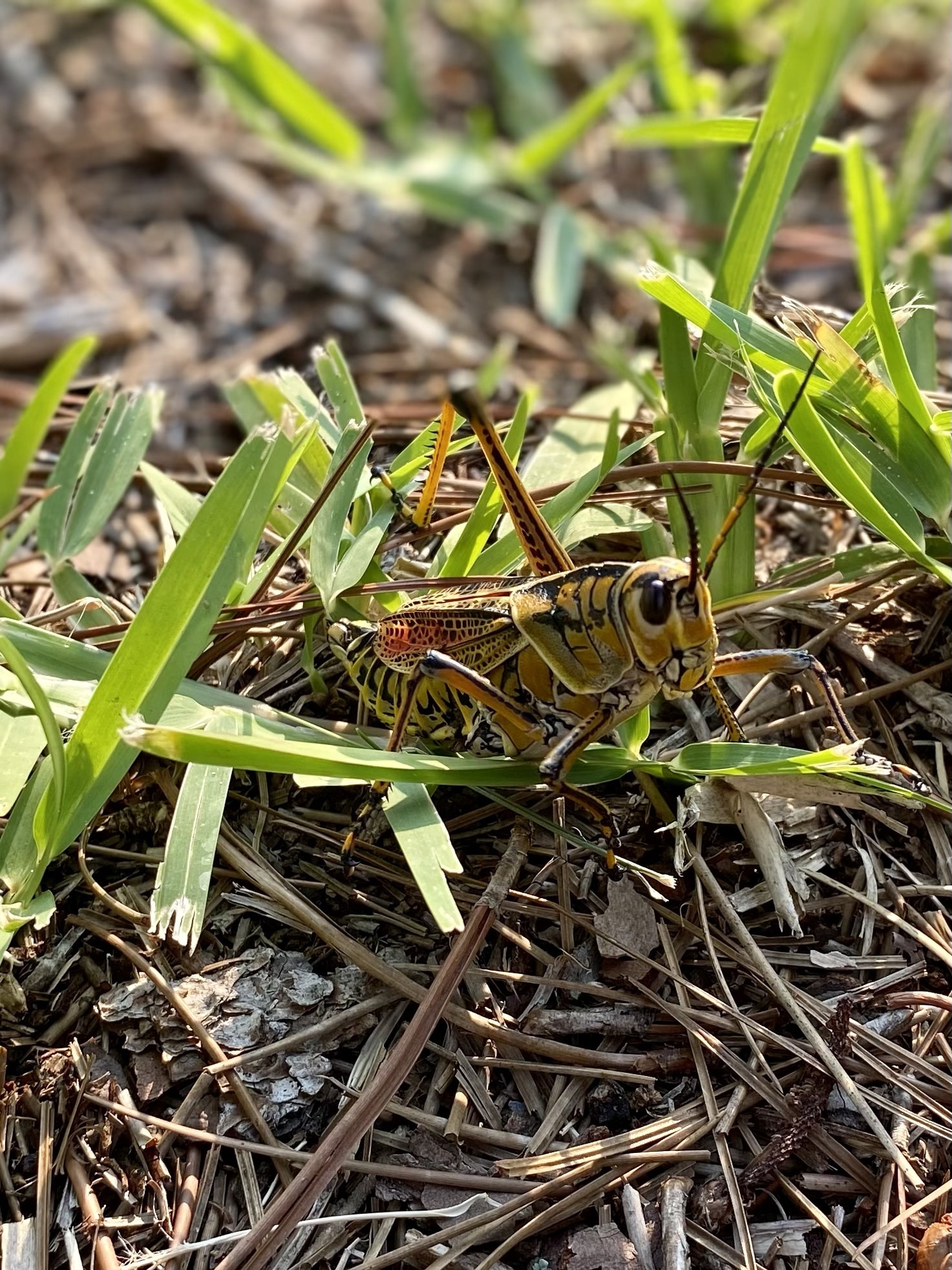

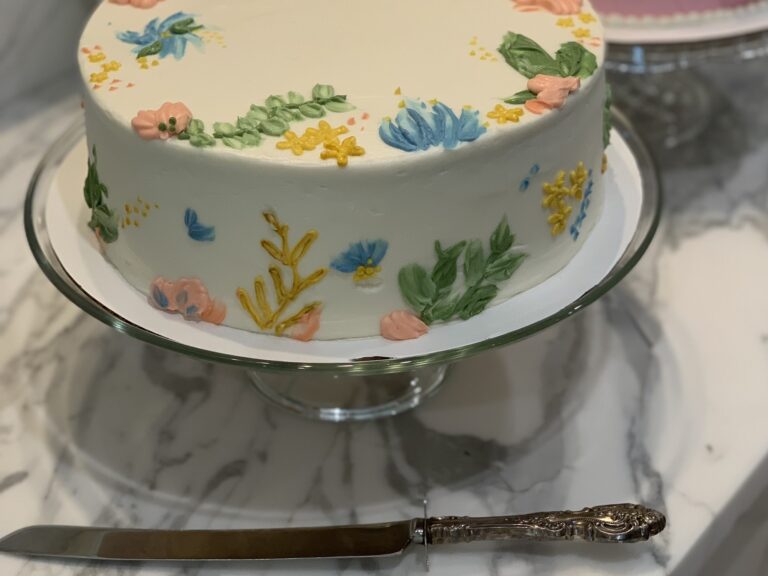
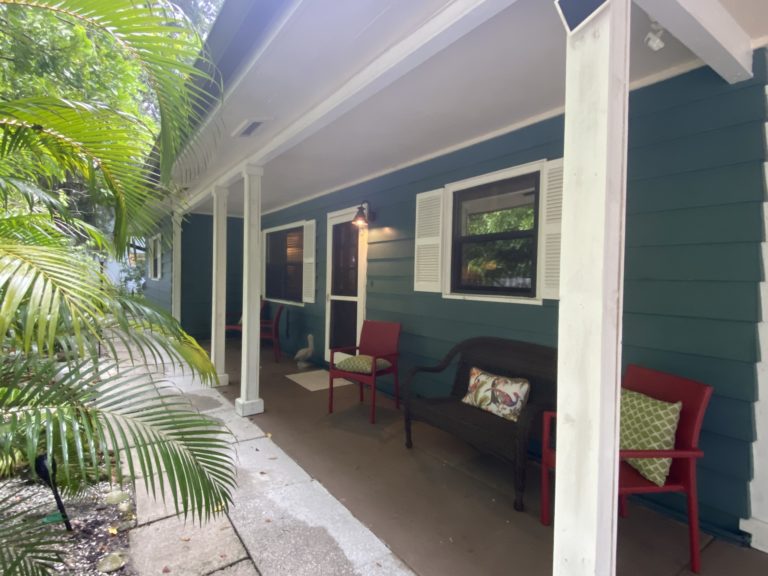
3 Responses
Wow! While in Florida I will be on the lookout for the eastern lubber! Very interesting!
Pretty cool critters, aren’t they? Did you happen to see any while in Florida? Bradenton might be a little too removed from the type of nature we find in Levy County, Florida! 🙂